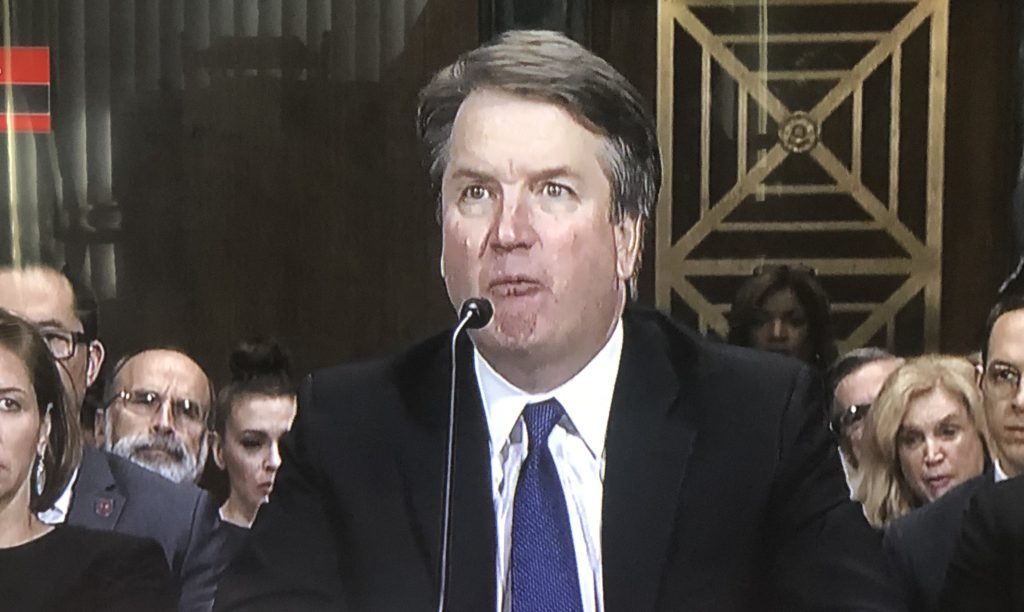Brett Kavanaugh lie detector test saga takes a new twist

When Dr. Christine Blasey Ford was coming forward with her attempted rape accusation against Supreme Court nominee Brett Kavanaugh, she made a point of taking (and passing) a lie detector test. Then when Kavanaugh testified before the Senate, Senator Kamala Harris asked him if he was willing to take a polygraph of his own. He said no, because, in his words, such tests are “not reliable.”
It turns out Brett Kavanaugh was lying when he said that he felt this way. Either that, or he was lying in 2016 when he issued a court ruling which stated that “law enforcement agencies use polygraphs to test the credibility of witnesses” and that these tests “serve law enforcement purposes.” His words from this ruling have been posted publicly by Senator Amy Klobuchar and others. Of course this only serves to make him look bad in a scandal where a dozen other aspects of it make him look far worse, right? So maybe this wasn’t going to be a major issue. Then this became an FBI matter.
Various legal experts have stated over the past twenty-four hours that they expect the FBI to offer Kavanaugh the opportunity to take a polygraph test. So what will he do? Will he decide to be the Brett Kavanaugh of 2016, who thought they were an important way to establish himself as a credible witness? Or will he decide to be the Brett Kavanaugh of 2018, who suddenly thinks such tests are not reliable? If the FBI offers him the chance to take one, and he refuses, that’ll go in the report.
So now Brett Kavanaugh’s shifting positions on the legitimacy of lie detector tests is more than a mere hypothetical. He’s going to have to decide if he wants to submit to one, or if he wants it noted for the record in the FBI investigation that he refused to take one. Of course if he’s lying about not having sexually assaulted anyone, then it’s a no-win decision for him either way.
